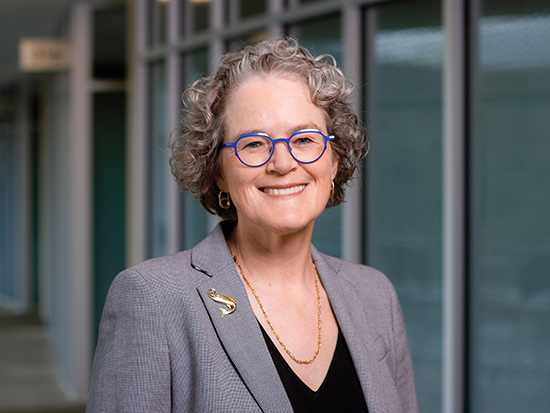By Savannah Koplon
UAB News
The National Institutes of Health on Wednesday announced that UAB’s Jeanne Marrazzo, M.D., has been selected to succeed Anthony Fauci, M.D., as the next director of NIH’s National Institute of Allergy and Infectious Diseases (NIAID) this fall.
“This is a great opportunity for Dr. Marrazzo to make a big difference to the country, and it is indicative of the high regard that exists for both her and UAB,” said Ray Watts, President and Anupam Agarwal, Senior VP of Medicine and Dean of the UAB Heersink School of Medicine. “While we are sad to see her go, we are delighted that Jeanne has been called to this national service and we are proud to count her as one of us at UAB.”
As director of our Division of Infectious Diseases during the COVID-19 pandemic, Marrazzo served as a trusted advisor and who provided insights, guidance and confidence to school leaders “that allowed our institution to thrive in spite of immense challenges,” said Watts and Agarwal. “She also helped inform the world, as she participated in constant local, national and global media interviews throughout the pandemic, sharing critical information and perspectives.”
As NIAID director, Marrazzo will oversee NIAID’s budget of $6.3 billion supporting research to advance the understanding, diagnosis and treatment of infectious, immunologic and allergic diseases.
The NIAID budget supports research at universities and research organizations around the U.S. and across NIAID’s 21 laboratories, including the Vaccine Research Center on NIH’s main campus in Bethesda, Maryland, and the Rocky Mountains Laboratories in Hamilton, Montana.
NIAID also has a unique mandate to respond to emerging and re-emerging public health threats at home and abroad. The NIAID research response to outbreaks of infectious diseases, from HIV to Ebola to COVID-19, has led to new therapies, vaccines, diagnostic tests and other technologies.
Watts and Agarwal said UAB will conduct a national search to identify Dr. Marrazzo’s successor in the Division of Infectious Diseases.




